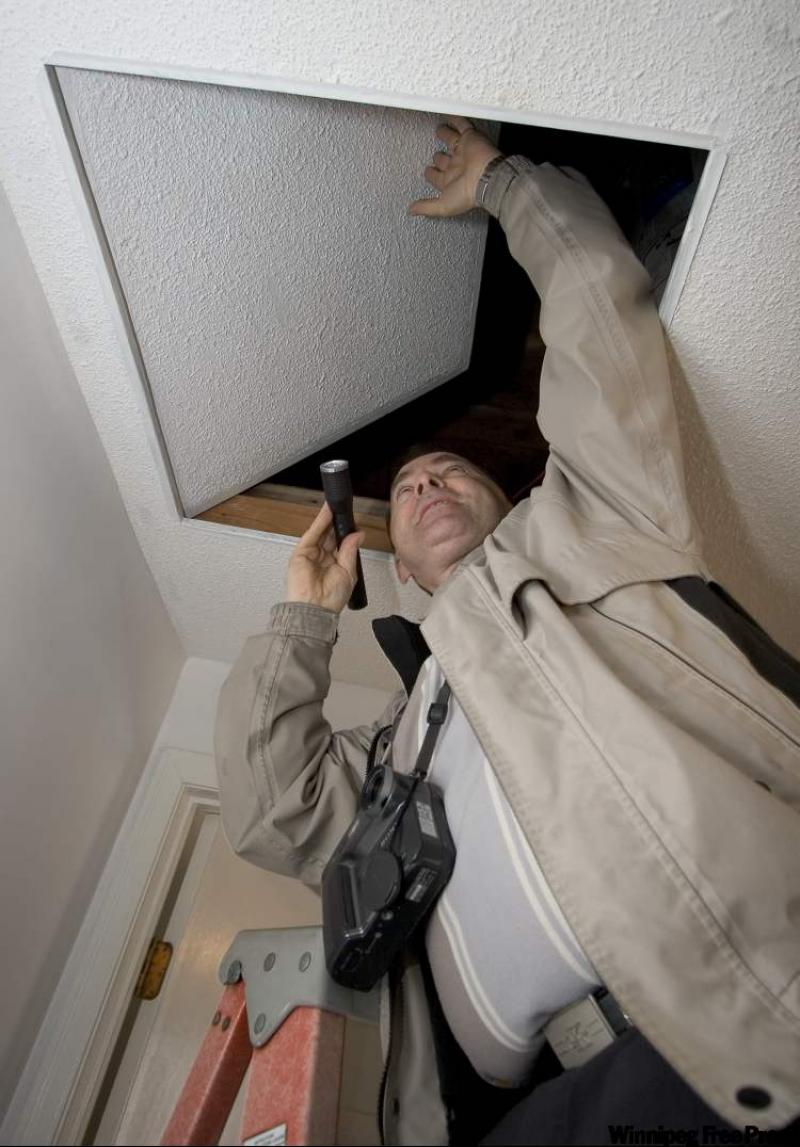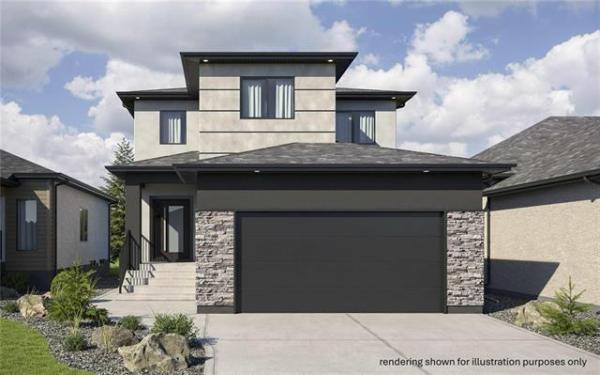
QUESTION: In the spring of 2007, we purchased an old two-storey home with a stone basement in the West End. At the time of viewing, there were a couple of warning signs that we should have heeded and not purchased this house. The current owner had a dehumidifier in the basement, although it wasn't running at the time of our viewing of the home. Also, fresh paint on the basement floor was already peeling.
When we took possession of the house I wanted my heating man to check out the furnace, as well as give it a tune-up. At the time of purchase we felt too pressured to get a home inspection or get even a simple furnace inspection done. The heating tech who came to see the furnace commented that there was so much moisture in the area around the furnace that there was serious rusting of metal pipes going on.
We knew a foundation contractor that had helped us do a basement wall repair in Westwood, and trusted his expertise. We got him to knock out the existing concrete floor, put in weeping corrugated plastic hose and a centrally located sump pump. He also poured a new floor slab after he had a waterproof dimpled membrane installed underneath. We also got a qualified plumber to replace the existing basement drain line that ran from the main stack to the connection with the line at the foundation wall that leads to the city drain, and had him rough in for a basement bathroom.
For about 15 months after the foundation work was done, the basement stayed empty, as the money that had been intended for our daughter's basement bedroom and bathroom had been blown on the foundation repairs. As far as I could tell, our basement moisture problem had been resolved.
Sometime during the winter of '08-'09, I discovered that we had serious ice buildup in our attic on the sheathing boards and the two-by-four rafters. With the help and advice of a friend, I added additional ventilation and insulation to these areas, which seemed to help, but was also very hard work. I have also done some work on the interior and exterior because I discovered some damaged siding and wet sheathing behind it. There is poor drainage at our basement wall on the outside, especially on the one side with our neighbour, as the grade is definitely headed my direction. On the side shared with the other neighbour, the situation isn't as bad, as the grade is basically level.
I would appreciate any wisdom you could share with me. -- Dan Enns
ANSWER: While I don't receive that many emails as detailed or descriptive as yours about home purchases, I do receive dozens of phone calls each year with similar experiences. The interesting thing about your submission is that you don't really ask any specific questions, just a desire for general wisdom or guidance.
I will try to provide some guidance, but mostly to other readers to help them avoid a similar situation. I will also highlight some new changes that come into effect this summer that may prevent this in the future.
I empathize with your situation, but I have the same feelings for many others in the last few years that have experienced similar surprises after moving into their newly purchased homes. The only way to minimize the chance of this occurring is to enlist the services of a professional CAHPI Registered Home Inspector (RHI).
Because of the hot seller's market of the last few years, purchasers are being actively persuaded to present "clean offers" on resale homes to make them as attractive as possible to the sellers. This is especially true when more than one offer is anticipated in a bidding-war situation.
While I see the rationale in this, I'm still amazed at the number of cases where inexperienced buyers, often first-time buyers, go blindly into the largest purchase of their lives without the help of a professional home inspection.
Even when there is reluctance to include an inspection condition in the offer to purchase it doesn't preclude you from doing the inspection. Many homes are now being advertised well in advance of the day that "offers will be accepted" in an attempt to drive up interest in the property. This time-frame gives prospective buyers the opportunity to do their inspection prior to submitting an offer. While this short time-frame can sometimes make it tricky to book the inspection, it is regularly done. If you follow through on this recommendation, you will be better equipped than all the other potential bidders to know the true condition of the home prior to offers.
If you had done a pre-offer inspection on your home, an experienced inspector may have confirmed your suspicions about the "warning signs" and also warned you about the potential for the ice-damming and other issues you later discovered. You may still have elected to buy the house, but would have been properly prepared for the expenses or offered a more appropriate price that would have allowed you room to do the repairs without financial hardship.
Partially to address this concern, but also to follow through on recommendations from a provincial government-commissioned report, changes are being made in the standard "Offer to Purchase" documents used by realtors. Clauses for property condition statements and property inspections will now be included in the main body of these documents. While these two conditions are not mandatory, they will have to be wilfully omitted by the purchaser, rather than added to the offer.
While this may seem to be a subtle change, similar forms with this negative option have been used in Nova Scotia for years with good success. Including the text directly in the offer documents should help persuade buyers to exercise their legal rights to due diligence before finalizing a house purchase.
The bottom-line is that increased consumer protection is on its way, and perhaps other purchasers will not feel as "pressured" as you were to forgo a critical inspection prior to signing the most important document of their lives.
Ari Marantz is the owner of Trained Eye Home Inspection Ltd. and the president of the Canadian Association of Home & Property Inspectors - Manitoba (www.cahpi.mb.ca). Questions can be e-mailed to the address below. Ari can be reached at (204) 291-5358 or check out his website at www.trainedeye.ca.
trainedeye@iname.com



